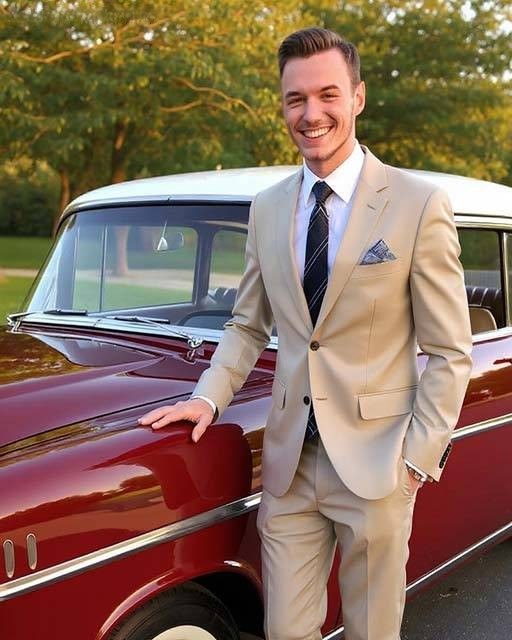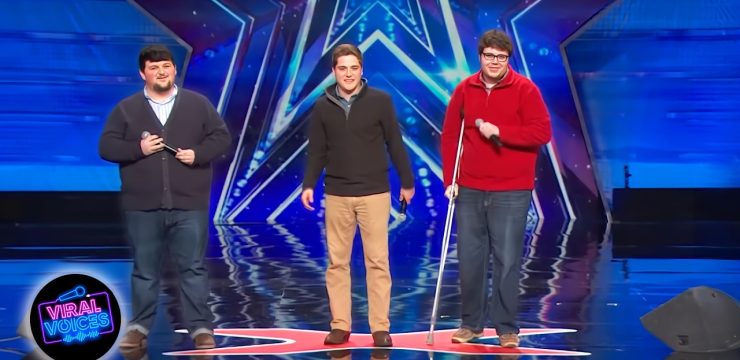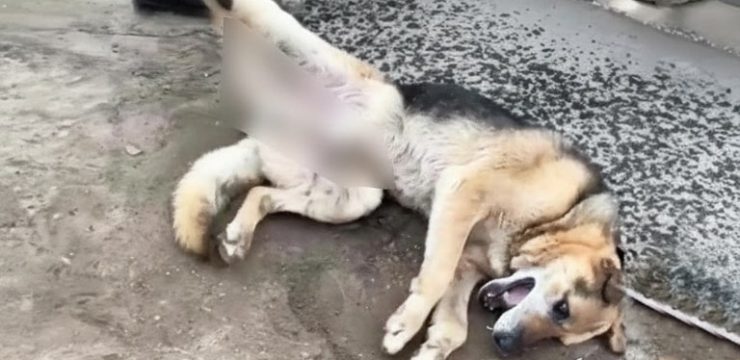Even now, all these years later, the memory of that day feels as sharp and vivid as if it happened just yesterday. I was seventeen, coming home from school with my backpack still slung over my shoulder, when my mother unexpectedly called me and my two sisters into the living room. It was strange—she worked nights and was rarely home at that hour.

She sat there with her hands clasped tightly in her lap, took a slow, deliberate breath, and as soon as she exhaled, I knew something was wrong. Her voice was calm, almost too calm, when she told us that Grandpa Walter had passed away. Eighty-two years old. Peaceful. No pain. The words fell on me like stones dropped into a still pond, each one sending out ripples that I couldn’t stop. Grandpa wasn’t just my grandfather—he was my anchor. Right up until the end, he was active, still going to classic car meets, and always tinkering with his pride and joy: a cherry-red 1957 Chevrolet Bel Air. My childhood was painted with the smell of motor oil, the metallic clang of tools, and the gleam of polished chrome.
Every Saturday, Mom would drop me off at his place, and we would spend hours washing the Chevy, checking the oil, or fixing whatever little “urgent” issue he claimed it had. Sometimes I messed up—once spilling oil all over the garage floor—but he would just laugh. And there was always candy in the ashtray, his playful way of telling me to “stick to candy” and never touch cigarettes. My sisters never joined; they didn’t like getting grease under their nails, and they never connected with him the way I did. When I heard he was gone, I didn’t cry in front of anyone. I locked myself in my room, shutting out the world. The next morning, hoping for some comfort, I came downstairs, but the air felt cold.
My sisters avoided my eyes, and when I apologized for hiding away the day before, they smirked. That’s when my mother looked straight at me and explained why they were upset—Grandpa had left me the Chevrolet. I was stunned. That car was his greatest treasure, and he had always said it would go to someone who truly loved it, but I never imagined he meant me. My joy was short-lived. “You’re not keeping it,” my mother said firmly. She pointed out that I wasn’t old enough to drive and that since I hadn’t gotten my license the year before, the car would be sold. The money would be split evenly between me, my sisters, and my cousins. “Fair’s fair,” she said, but it didn’t feel fair.
That car was more than metal and paint—it was Saturdays in the garage, shared laughter, and an unspoken bond. I begged her to change her mind, but within days a buyer offered $70,000, and just like that, it was gone. I stood at my window, watching the man drive away, the sunlight bouncing off the chrome, and I swore to myself I would get it back one day. Years passed. I worked tirelessly, juggling part-time jobs, earning top grades, and later going to college for mechanical engineering. By twenty-seven, I had a good job in automotive engineering and enough savings to start my search. Through the close-knit classic car community, I learned the Chevy was owned by Michael Bennett, a local collector known for keeping his cars immaculate. When I called him, I barely finished my introduction before he invited me over to see her.
Two days later, I stood in his driveway, staring at the Chevy as if no time had passed. She was exactly as I remembered—paint flawless, chrome gleaming, engine purring like it had just rolled off the line. Michael told me he had many offers but could tell the car meant more to me than money. He agreed to sell it back for $80,000, and I didn’t hesitate. Driving her home that afternoon, I could almost feel Grandpa sitting beside me. At a gas station, instinct made me reach for the ashtray. It was empty—except for a scrap of white paper peeking from underneath. I pulled it out and found an old yellowed envelope with my name in Grandpa’s unmistakable handwriting.
Inside was a folded letter and a small tissue-wrapped bundle. The letter began, “If you’re reading this, you found her again. I knew you would.” He revealed that he had always considered me his true son and shared a secret—my mother was not his biological daughter. He had left me the Chevy because I loved it, and him, more than anyone. Inside the tissue was a flawless green gemstone, shimmering in the light, with a note on the back of the envelope: “I knew you’d find the candy.” I sat there for a long time, tears blurring my vision, holding the gem in one hand and the letter in the other. In that moment, I realized it wasn’t just a car he had given me—it was truth, love, and one last gift that no one could ever take away. Real strength, I understood, isn’t just surviving loss—it’s honoring the bonds that endure beyond it.





